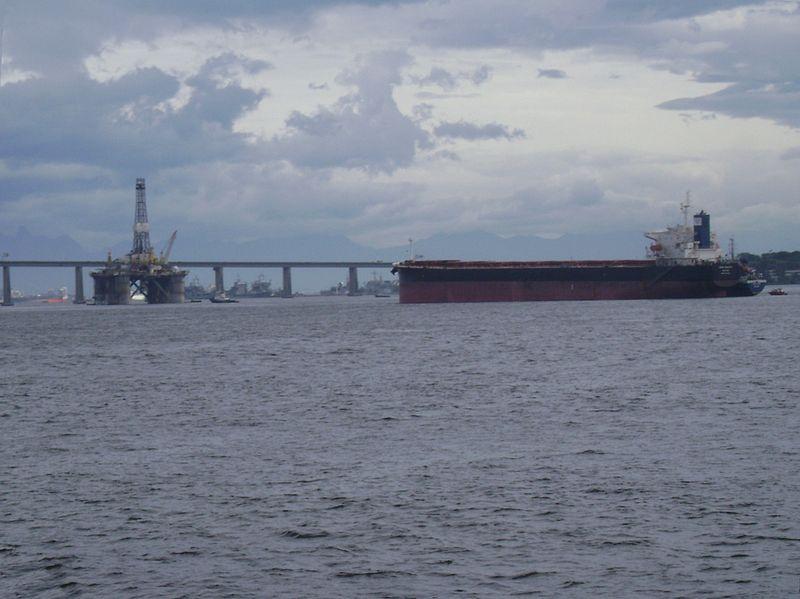Oil prices climb as tensions with Iran persist
An oil tanker sits at Guanabara Bay, in Rio de Janeiro, Brazil. Oil prices are climbing globally in part because of tensions with Iran. (Photo by Andrevruas via Wikimedia Commons, cc-by-sa.)
Tensions with Iran, growing demand from China and other developing nations and still-reduced supply from Libya have sent oil prices to winter-time highs in the United States.
This time last year, the unfolding revolution in Libya sent prices climbing, putting pressure on the still-recovering global economy. Prices reached $100 a barrel last year before falling back to about $80 a barrel. Prices had been steady there until the recent tensions with Iran — and that country’s threats to close the Straits of Hormuz — sent prices back upward. Crude oil prices in New York are $103 as of today — though they’ve been as high as $119 this week.
Lisa Margonelli, a fellow at the New America Foundation, said she’s baffled by the pronouncement that Iran would cut off oil shipments in advance of the new sanctions going into effect. Though she pointed out that just one Iranian news agency said the country would end shipments to six European countries, and other news agencies in fact said that was not the case.
“There’s a lot of factions inside Iran. The power is not solidified and they don’t have a unified message. Everyone is saying something different,” she said. “That’s on instability.”
Margonelli suggested the “happy solution” may be that the price of oil rises, but no military conflict occurs. A price increase would certainly hurt Europe and the United States. Russia and other MIddle Eastern countries are fond of prices increasing — because it produces more revenue for them.
But it’s hard to know how this will all play out, because, ultimately, the large economies all import as well as export. China, for example, may be able to get lower prices for oil from Iran, but may have to pay higher prices for the oil it gets from Russia, Margonelli said.
“The other thing is, I just don’t understand how Iran thinks it’s going to determine who gets its oil. That was certainly possible in the 1973 oil embargo, because every tanker had an address sticker on it. But that’s not the case now. The oil leaves the ports and can be traded 300 times in the tanker before it reaches its eventual destination.”
In the United States, the oil instability will likely play a major role in this year’s political debates. The recent transportation proposal from House Republicans, for example, is funded in large part by increased domestic oil drilling.
“As prices rise, people are going to be fighting between their anger with the oil companies and their anger at President Obama,” she said. “It really has a strong possibility of impacting every household across the country.”
